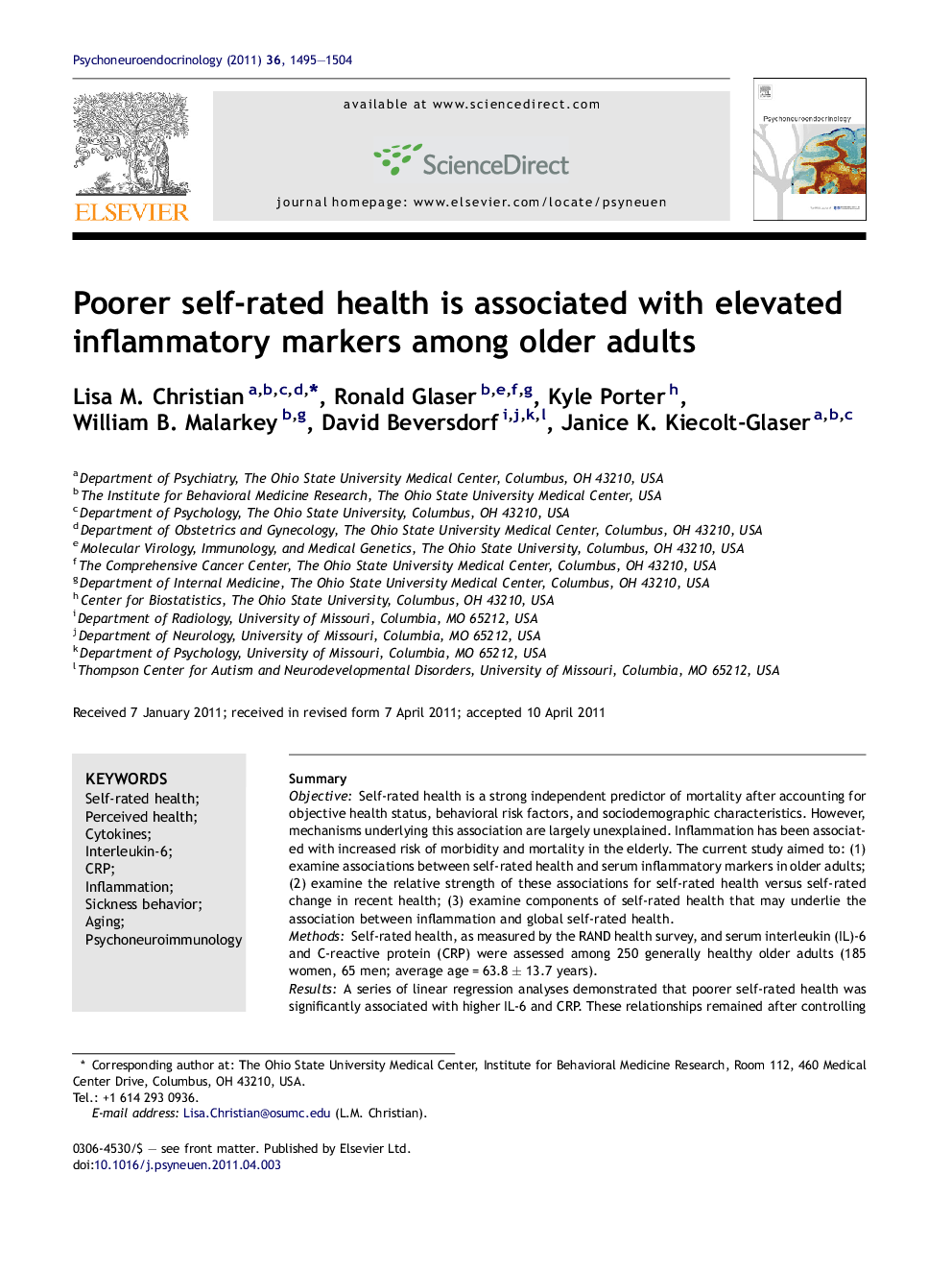| Article ID | Journal | Published Year | Pages | File Type |
|---|---|---|---|---|
| 336493 | Psychoneuroendocrinology | 2011 | 10 Pages |
SummaryObjectiveSelf-rated health is a strong independent predictor of mortality after accounting for objective health status, behavioral risk factors, and sociodemographic characteristics. However, mechanisms underlying this association are largely unexplained. Inflammation has been associated with increased risk of morbidity and mortality in the elderly. The current study aimed to: (1) examine associations between self-rated health and serum inflammatory markers in older adults; (2) examine the relative strength of these associations for self-rated health versus self-rated change in recent health; (3) examine components of self-rated health that may underlie the association between inflammation and global self-rated health.MethodsSelf-rated health, as measured by the RAND health survey, and serum interleukin (IL)-6 and C-reactive protein (CRP) were assessed among 250 generally healthy older adults (185 women, 65 men; average age = 63.8 ± 13.7 years).ResultsA series of linear regression analyses demonstrated that poorer self-rated health was significantly associated with higher IL-6 and CRP. These relationships remained after controlling for age, body mass index, gender, and objective health conditions. These associations also remained after controlling for depressive symptoms, neuroticism, perceived change in health over the past year, and health behaviors (smoking, sleep quality, and physical activity). Analyses of RAND component measures demonstrated that poorer physical functioning was significantly associated with IL-6; the relationship between global self-rated health and both IL-6 and CRP remained after accounting for perceived physical functioning.ConclusionsPoorer self-rated health is associated with elevated serum inflammatory markers among generally healthy older adults. The relationship of self-rated health with inflammatory markers is not secondary to depressive symptoms, neuroticism, or recent changes in perceived health. Subjective ratings of health provide important clinical information regarding inflammatory status, beyond traditional objective risk factors, even among generally healthy individuals.
